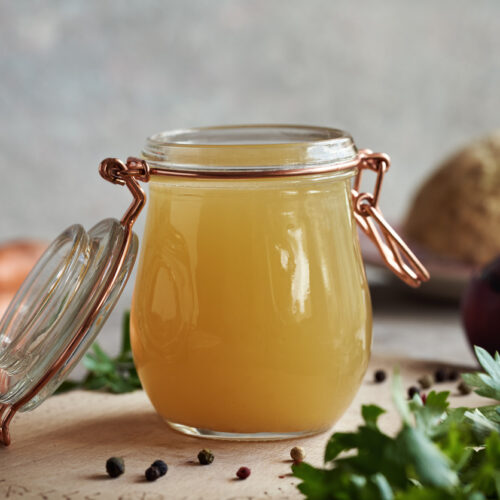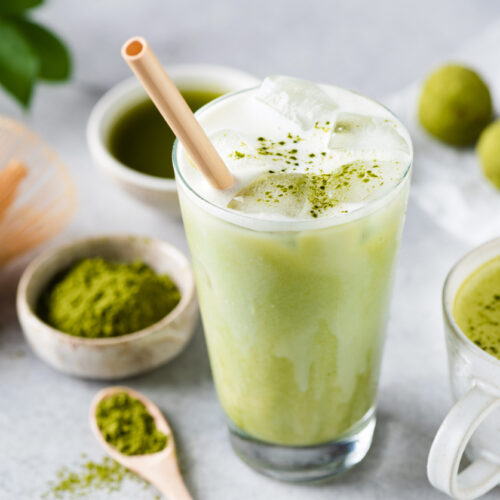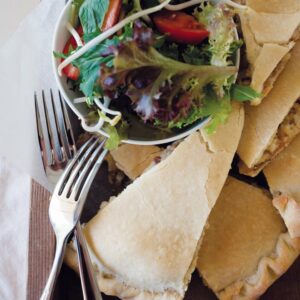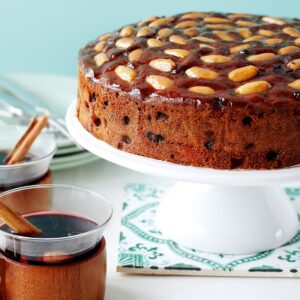
Breastfeeding can provide optimal nutrition and health benefits for both mum and baby, if you are able to do it. But are there foods you can eat to give your baby the best possible nutrition? And what if problems crop up? Nutritionist Cindy Williams has some advice.
Not everyone can breastfeed, for a variety of reasons, and baby formula is a safe alternative to breastmilk in this instance, providing all the nutrients your baby needs for the first six months of life. But for most new parents, breastfeeding is one of the first challenges and rewards of parenting.
If you are able to breastfeed, it’s comforting to know your body produces the ideal food, perfectly designed to meet all your baby’s nutrition and energy needs for a great start to life. But when, after a few weeks, your baby starts fussing, spitting up milk or develops a rash, you may be tempted to ask yourself, “Is it something I am eating?”
Do you need to eat a special diet while breastfeeding? The answer is no. There is no special diet and no foods that you need to avoid. In fact, the more varied your diet, the better. A healthy diet which includes some lean meat, chicken or fish, eggs, legumes, nuts and seeds, some wholegrain bread and cereals, dairy foods, lots of vegetables, fruit and around 10 cups of fluids each day is ideal.
While breastfeeding you need about 2000kJ more each day. In food terms you can get these extra kilojoules from a glass of milk, a small handful of nuts, an egg and a piece of fruit. Eating a varied, nutrient-rich diet not only keeps you healthy but ensures your breast milk provides optimal nutrition for your baby.
There is no need to take a multivitamin supplement. If your doctor thinks you are at risk of being low in vitamin D, they may recommend that you take a vitamin D supplement.
The Ministry of Health recommends that all breastfeeding parents take an iodine supplement of 150mcg (micrograms) a day. Iodine is vital for a baby’s growth and brain development. It is found in seafood, sushi, milk, seameal custard, eggs and is added to all commercially made bread except organic bread.
Can I drink coffee while breastfeeding?
About one per cent of the caffeine from your cup of coffee, tea, can of cola or block of chocolate goes into your breast milk. It takes about sixty minutes for the level to peak. You can limit the caffeine in your breast milk by feeding your baby just before or while you have that much needed cappuccino or Earl Grey. Newborns are highly sensitive to caffeine. They can take up to 160 hours to clear caffeine from their body while a six-month-old may take only two or three hours. For most people two to four caffeine drinks a day will be OK. Some people and babies, however, are more sensitive to caffeine and may cope better with less.
Can I drink alcohol while breastfeeding?
It is best not to drink alcohol while breastfeeding, especially for your baby’s first month of life. Thirty to 60 minutes after having one standard alcoholic drink, eg. a small glass (100ml) of wine, the alcohol will be in your breast milk. It takes around two hours to clear the alcohol from this one drink. Alcohol also inhibits the bonding hormone oxytocin and can delay let-down of milk and decrease milk production. If you are choosing to drink alcohol, experts recommend expressing milk before drinking to ensure baby receives alcohol-free breastmilk. Alcohol in breastmilk may make baby irritable, unsettled or not able to feed.
Colic
Colic is a general term for uncontrollable fussing and crying in an otherwise healthy baby. It’s normal for a baby to cry for up to three hours a day for all sorts of reasons: hunger, wind, dirty nappy, too hot, too cold, over- stimulated, tired, lonely or going through a growth spurt. But when the crying continues for more than three hours a day for more than three days a week it is described as colic. Babies do grow out of colic by 12-16 weeks but for those few months it is extremely stressful and exhausting for the parents.
It is not known what causes colic. Some theories suggest it’s a baby’s immature digestive system or emotional upset from tiredness, over-stimulation or hunger but mostly there is no-one and nothing to blame.
If cuddling, rocking and massaging don’t help and you are going crazy, see your doctor. He or she can check for other causes such as reflux, cows’ milk allergy and in very rare cases, lactose intolerance, or at the very least, reassure and support you through this difficult period.
Dietary changes may reduce colic in a small minority of infants but for most infants it will not help. In your understandable desperation to do something to alleviate your infant’s incessant distress it can be tempting to cut out potentially allergenic foods such as milk, soy, nuts, peanuts, eggs and wheat just in case it might help. This deprives you and your baby of many nutrients that are important for growth and development. If you are still determined to cut out a certain food, it is recommended that you do it under the guidance of your doctor or dietitian, and reintroduce the food if there is no noticeable difference. It may help to cut back on coffee, tea, chocolate and energy drinks to reduce caffeine. Avoiding cigarette smoke may also help. There is little evidence that cutting out the ‘windy’ vegetables such as cabbage, cauliflower and broccoli helps.
FODMAPS and colic
FODMAPS are poorly digested carbohydrates in foods such as onion, garlic and legumes. In an unpublished trial, five breastfeeding mums found that after a week on a low-FODMAP diet, their babies cried on average one hour less a day — a 35 per cent reduction. This is an interesting possibility that requires further research. Because these foods are so important for gut health it’s important that they are only restricted for a limited time and then reintroduced. If you wish to try it for your colicky baby, do so only under the advice and supervision of a specialist dietitian.
Allergy
Allergy is an immune reaction to certain proteins — usually in cows’ milk, soy, nuts, peanuts, fish, egg and/or wheat. Your baby may cry a lot as with colic but with an allergy there will also be other symptoms such as eczema or a rash, wheezing or cold-like symptoms, vomiting, sore bottom, blood or mucus in stools, diarrhoea and poor weight gain.
Excluding potentially allergenic foods such as peanuts or cows’ milk does not reduce the risk of your baby developing a food allergy. Emerging research suggests the opposite may be true. Recent international guidelines encourage pregnant and breastfeeding women to eat foods associated with allergies, unless they have an allergy to the food themselves.
If your baby is diagnosed with a food allergy or, despite the current recommendations, you choose to avoid certain foods it is very important to see a dietitian or doctor specialising in food allergy. They will be able to support and guide you as to how to still get all the nutrients you and your baby needs while avoiding the offending food.
Reflux
It’s normal for a baby to bring up about one teaspoon of milk after a feed. This is because the oesophageal sphincter at the top of the stomach is weak. However, it is not normal if your baby brings up large amounts of milk or is distressed during and after feeding or is not gaining weight.
A baby may have reflux without bringing up much milk. With this silent reflux the milk does not come up so far or the baby swallows the regurgitated milk. This may be the problem if your baby coughs a lot after feeds.
By 12-18 months the oesophagus will have strengthened and the reflux will settle. You can minimise reflux by non-food methods such as keeping baby upright during and after feeding, giving small, frequent feeds, winding frequently, dressing in loose clothing around their tummy and checking they are not slumped over in the car seat.
Possible food causes of baby distress
If your baby seems distressed or not their usual happy self, could it be something you ate and how do you figure it out? Think back over the past 24 hours to see whether you have eaten anything different from your usual diet eg. a hot spicy curry or copious glasses of acidic orange juice. Keep a food diary of what you eat along with how your baby reacts to see if any foods repeatedly appear. If you are at all concerned, see your doctor or dietitian.
Even adults suffer upset stomachs if they eat too much of a food they are not used to. This does not mean they are allergic to it or have to avoid it forever. If a food you have eaten irritates your baby’s immature digestive system, simply eat less of it or leave it a few weeks or months to give your baby’s body time to mature. Most importantly remember that there is no food you must avoid. Every person and baby is different and the best diet is a little bit of a lot of different foods.
Fantastic foods for a breastfeeding parent
Each food is a unique multi-vitamin-mineral combo pack. Eat a variety and you will cover all your nutritional bases:
- Fish — protein, iodine, vitamin D, omega-3 (for nerve, eye and brain development), calcium (from bones in canned salmon and sardines)
- Reduced-fat milk — protein, calcium, iodine
- Eggs — protein, iodine, vitamin D, vitamin A (for vision, skin, bone and gene development, and resistance to infection)
- Green, leafy vegetables such as spinach, silver beet, broccoli — folate, vitamin A
- Nuts — protein, healthy fats, zinc, folate, many essential minerals
Great snacks for a breastfeeding parent:
- Fruit smoothie
- Sushi
- Wholegrain crackers with avocado, hummus or peanut butter
- Pottle of yoghurt
- Dried fruit and nuts
www.healthyfood.com










